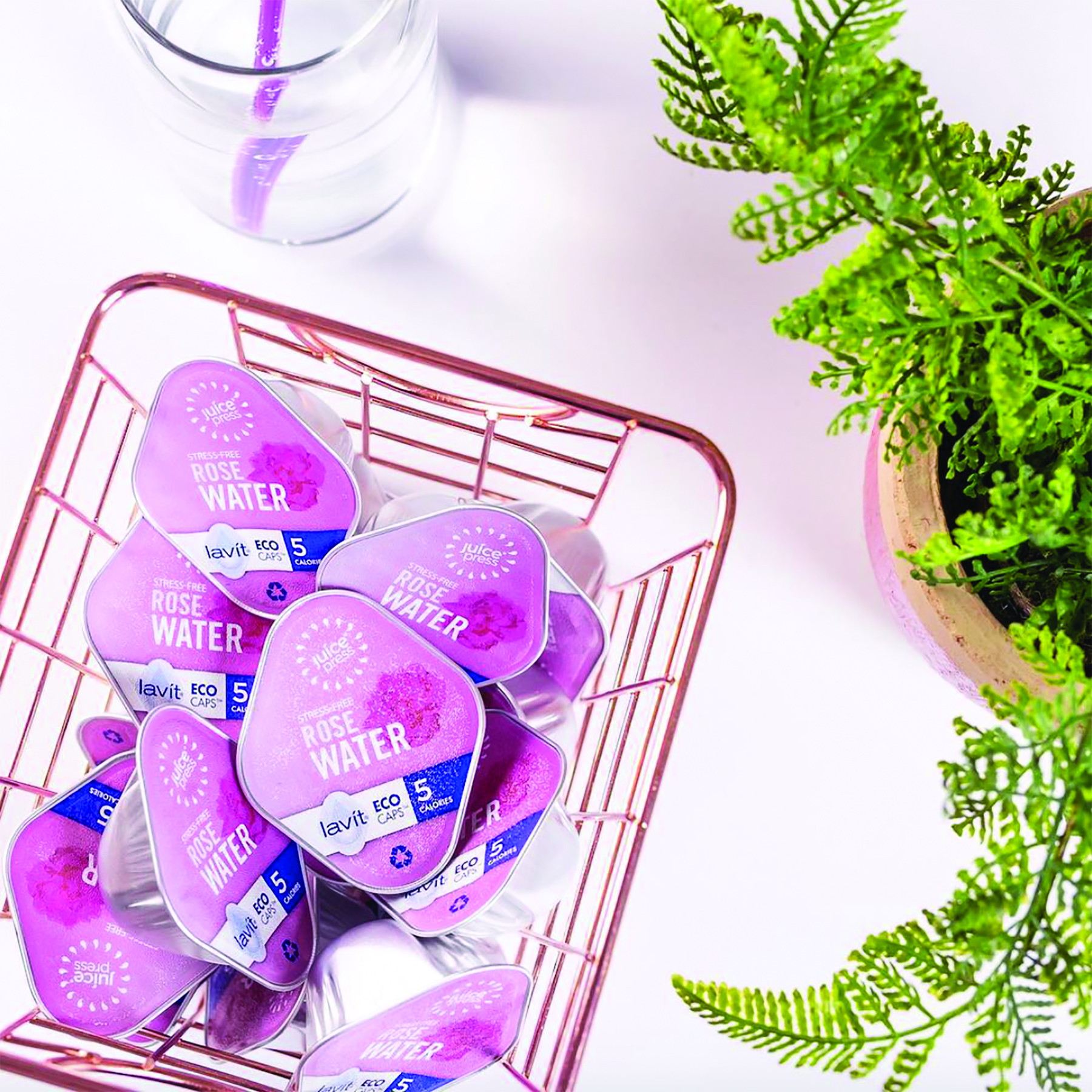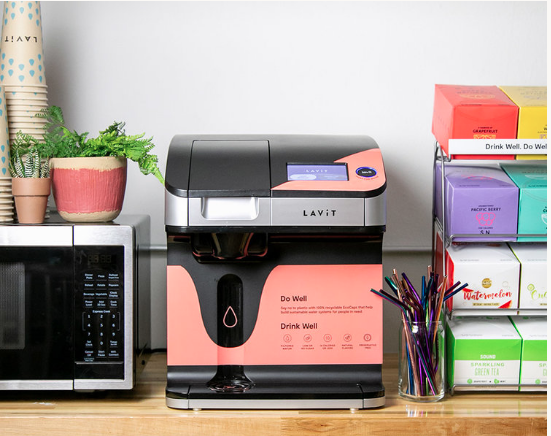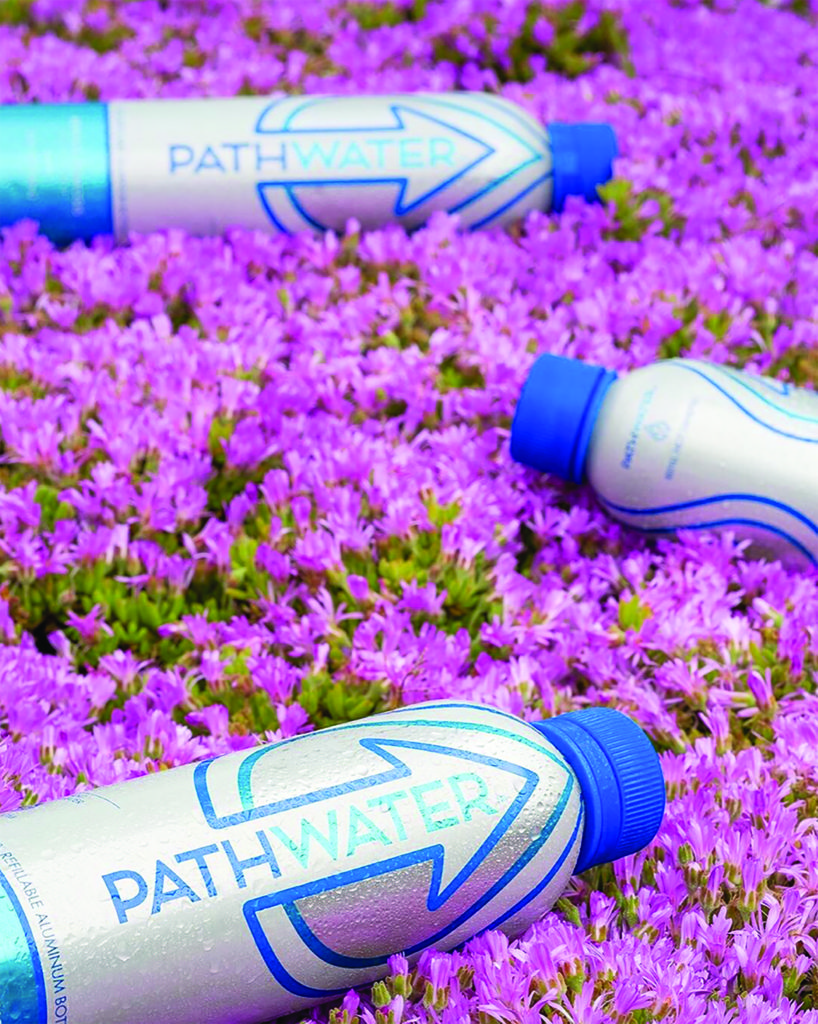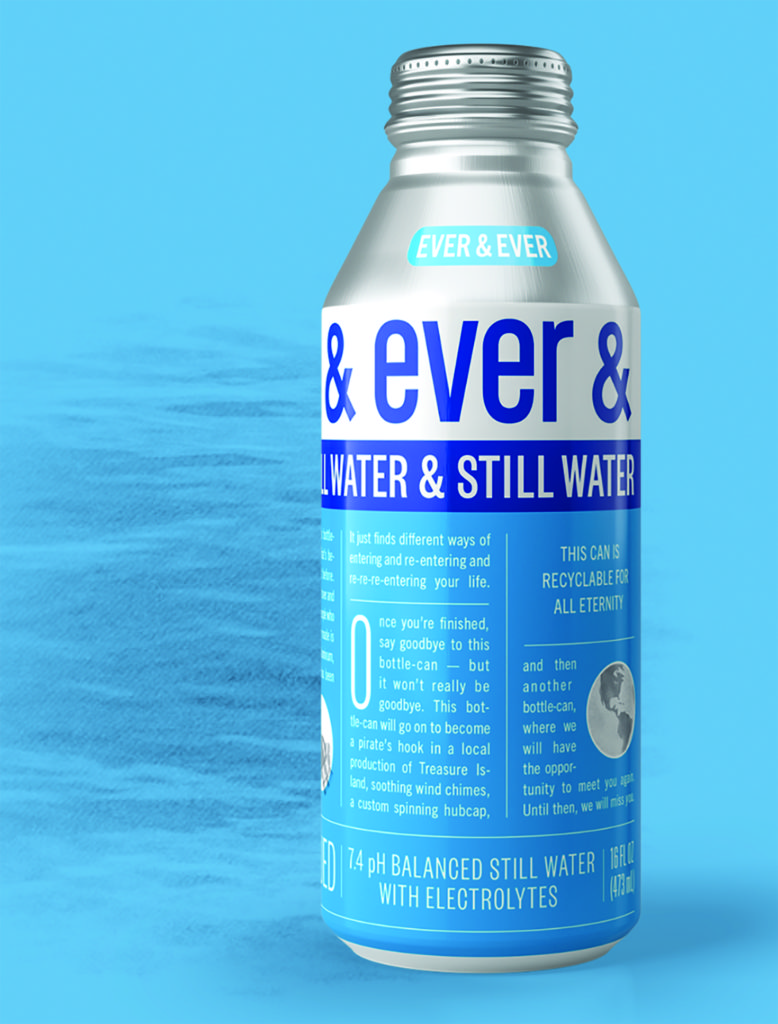
by Marisa Belger
The war on plastic is real. We started with plastic bags, stocking the trunks of our cars with reusable grocery totes instead. We then moved to plastic straws, ditching them for paper, stainless steel or bamboo, or sipping straight from the cup. Today, the sights of environmental activists—along with anyone invested in the fate of the Earth—are set firmly on the next frontier of planetary protection: the eradication of single-use plastic water bottles.
Statistically, the situation is staggering. There are 50 billion plastic water bottles produced in the United States each year. Approximately 76 percent of those bottles end up in landfills or the ocean. Though our reliance on plastic water bottles is relatively new—they’ve been around for only about 30 years—their presence in our lives has resulted in a serious mess, one that’s not going anywhere anytime soon. It takes 700 years for one plastic water bottle to decompose. Buoyed by numbers that we can no longer hide from, a handful of innovative companies are packaging water in aluminum cans and bottles. Aluminum is the most recycled material—75 percent of all the aluminum ever produced is still in use—and it loses no volume in the recycling process.

NYC-based Lavit is capitalizing on aluminum’s sustainability through a different vehicle, the “EcoCap.” The aluminum capsules contain drink blends for beverages that come to life when popped into Lavit’s proprietary machine. There they are mixed with purified still or sparkling water to create drinks from iced coffee and green tea to tonics designed to increase energy or focus. The caps are completely recyclable and are poised to be a revelation for the office kitchen—Lavit machines can be found in companies across the U.S., Canada and Puerto Rico—and perhaps one day, the home kitchen. “It’s our goal for single-use plastics to be treated like second-hand smoke is treated in our culture,” says Steve McKnight, co-founder of the company. “We’re starting with the office, as a tremendous amount of beverages are consumed in the U.S. workplace, and it’s usually the first frontier of habit-forming changes.”

PathWater aims to promote sustainability among younger generations, offering students in more than 50 U.S. school districts in 14 states the opportunity to purchase their reusable aluminum bottles and refill them at purified water stations (see ya, rusty water fountains!). “The average consumer refills our bottle eight to 10 times,” says partner Cedric Bonaroch, who calls his product “a flask that comes with water” and proudly boasts that one PathWater bottle replaces 156 plastic bottles a year.

From their Chicago headquarters, Open Water distributes aluminum cans of sparkling and still water to restaurants committed to eliminating plastic water bottles, including Sweetgreen, Cava and Zoës Kitchen. “Bottled water isn’t going away anytime soon,” says Nicole Doucet, co-founder and CEO of Open Water. “We came up with the same product but figured out how to reduce the impact of the packaging.” For Ever & Ever, a new water company born from All Market, Inc. (parent company of coconut water giant Vita Coco), aluminum-packaged water makes for an ideal collaboration with Lonely Whale, the nonprofit behind the campaign to ditch plastic straws.
Each of these companies is committed to packaging water in aluminum that is BPA-free, but not all are created equal. As you weigh the pros and cons of plastic alternatives, be sure to do your own research. “It’s easy to market things in a way that seems more green, but it’s important to dig a bit deeper to see what you’re really buying,” warns Doucet.





